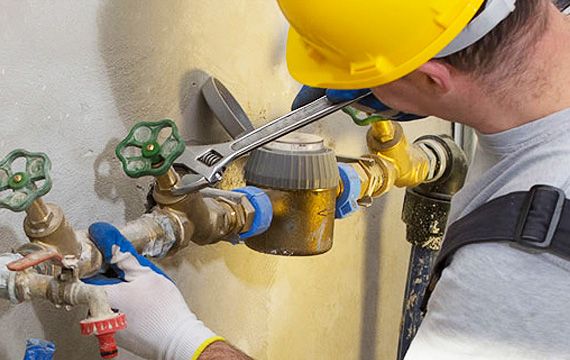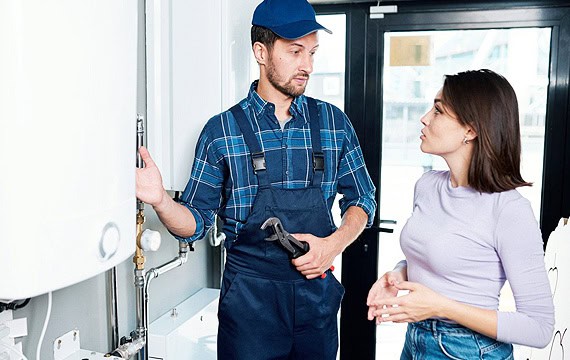Understanding Plumbing Costs: What Do Most Plumbers Charge Per Hour and How to Budget for Services?
Introduction
When it comes to home maintenance, plumbing is often one of the most critical aspects that homeowners need to manage. Whether you’re dealing with a leaky faucet or planning a complete bathroom remodel, understanding plumbing costs can save you both money and stress in the long run. This comprehensive guide will explore what most plumbers charge per hour, how to budget for these services, and tips on finding a reliable "plumber near me."
With so much information out there, it can be overwhelming to navigate through the different fees and charges associated with plumbing services. However, by the end of this article, you'll have a solid grasp of what to expect regarding costs and how best to budget for your plumbing needs.
Understanding Plumbing Costs: What Do Most Plumbers Charge Per Hour?
When hiring a plumber, the first question that usually comes to mind is: "What do most plumbers charge per hour?" The answer isn’t always straightforward, as several factors influence plumbing rates. Generally speaking, plumbers may charge anywhere from $45 to $200 per hour depending on their experience, location, and the complexity of the job.
Factors Influencing Plumbing Rates
1. Experience Level
- Novice Plumbers: Those just starting out may offer lower rates—typically around $45-$75 hourly.
- Experienced Professionals: Established plumbers with years of experience can charge between $100-$200 per hour.
2. Geographic Location
- Costs vary significantly depending on where you live. Urban areas tend to have higher rates due to increased demand.
3. Type of Service Needed
- Emergency plumbing services can see rates rise significantly—often 1.5 times the normal hourly rate during off-hours.
Hourly vs Flat Rate Pricing
Some plumbers offer flat-rate pricing based on specific jobs rather than charging hourly. This could be beneficial for larger projects like repiping or bathroom renovations where time estimates may vary widely.
Average Rates Across Different Regions
| Region | Average Hourly Rate | |---------------------|---------------------| | Urban Areas | $100 - $200 | | Suburban Areas | $75 - $150 | | Rural Areas | $45 - $100 |
How to Budget for Plumbing Services?
Budgeting for plumbing services doesn’t have to be daunting if you’re armed with the right information. Here are some strategies:
1. Assess Your Needs
Before contacting a plumber, identify what issues need addressing—be it repairs or installations—and gather quotes from multiple professionals.

2. Create an Emergency Fund
Unexpected plumbing emergencies happen all too often; having local plumbing company near me an emergency fund specifically for this purpose can alleviate stress when urgent repairs arise.
3. Consider Long-Term Investments
Sometimes spending more upfront can save you money in the long run—consider investing in high-quality fixtures that require less maintenance over time.
Common Plumbing Services and Their Costs
Knowing what typical services cost can further aid in budgeting effectively:
1. Leak Repairs
Leaking pipes might seem small but can lead to extensive damage.
- Average Cost: $150 - $350
2. Drain Cleaning
Clogged drains are common issues that need immediate attention.
- Average Cost: $100 - $250
3. Water Heater Installation/Repair
Hot water is essential; hence these services are often required.
- Average Cost:
- Repair: $100 - $300
- Installation: $800 - $1,500
Finding a Reliable Plumber Near Me
Searching for "plumber near me" online yields numerous results, but not all plumbers are created equal! Here are some tips on finding a reputable professional:
1. Read Reviews
Websites like Yelp and Google My Business provide valuable customer testimonials that help gauge reliability and quality.
2. Ask for Recommendations
Word-of-mouth recommendations from friends or family can lead you directly to trustworthy services.
3. Verify Licensing & Insurance
Always check that your plumber has the necessary licenses and insurance coverage before hiring them.
Signs You Need Professional Plumbing Help
Indications such as persistent leaks or low water pressure might signal underlying issues needing professional intervention:
1. Persistent Leaks
If you're constantly wiping up water spots or hear dripping sounds continuously, call a professional immediately!
2. Low Water Pressure
Noticeably reduced water flow could indicate clogs or serious pipe issues requiring expert assessment.
FAQs About Plumbing Costs
Q1: Are there any hidden fees I should know about?
A1: Some plumbers may add service call fees or additional charges for parts not included in their initial estimates; always ask about potential extra costs upfront!
Q2: Can I negotiate prices with my plumber?
A2: While negotiating isn't common practice in this industry, discussing your budget openly may lead to discounts or alternative solutions.
Q3: What’s the difference between commercial and residential plumbing costs?
A3: Commercial plumbing often requires specialized knowledge leading to higher costs compared to residential work due mostly to scale and complexity differences.
Q4: Do I need a permit for plumbing work?
A4: Major renovations typically require permits; consult local regulations before beginning any big projects!
Q5: How often should I have my plumbing inspected?
A5: It’s wise to schedule inspections every two years unless you notice significant issues sooner!
Q6: What's covered under warranty after installation?
A6: Many reputable companies provide warranties covering parts installed by them; inquire about specifics when hiring!
Conclusion
Understanding plumbing costs is crucial for effective budgeting and making informed decisions about home repairs or upgrades. By knowing what most plumbers charge per hour—along with all relevant factors influencing those rates—you’ll be better equipped when searching for reliable "plumber near me" options.
Remember that investing in quality work pays off long-term through fewer repairs and enhanced efficiency at home! Being proactive not only saves cash but also secures peace of mind when dealing with something as essential as your home's plumbing system.

With this guide in hand, you're now ready to tackle any plumbing issue while keeping your budget intact!